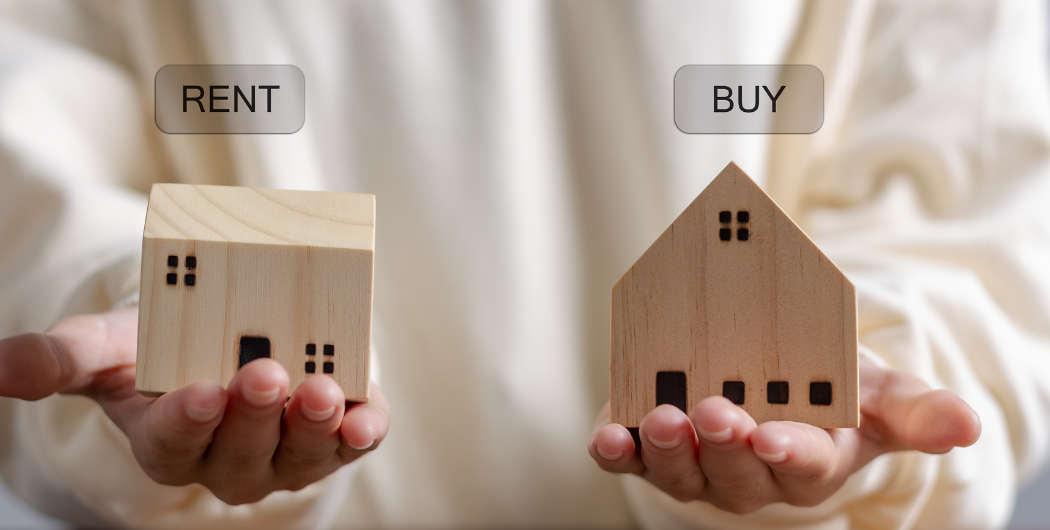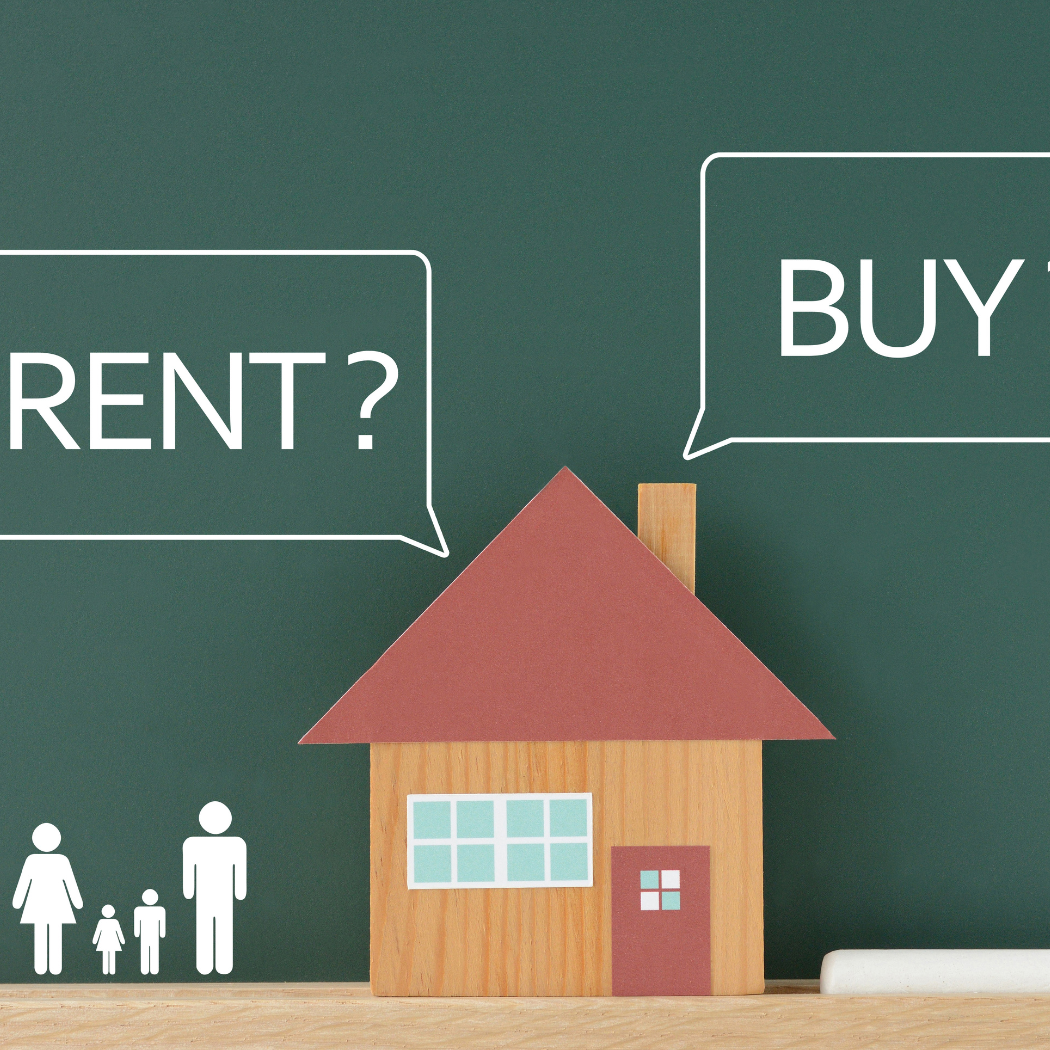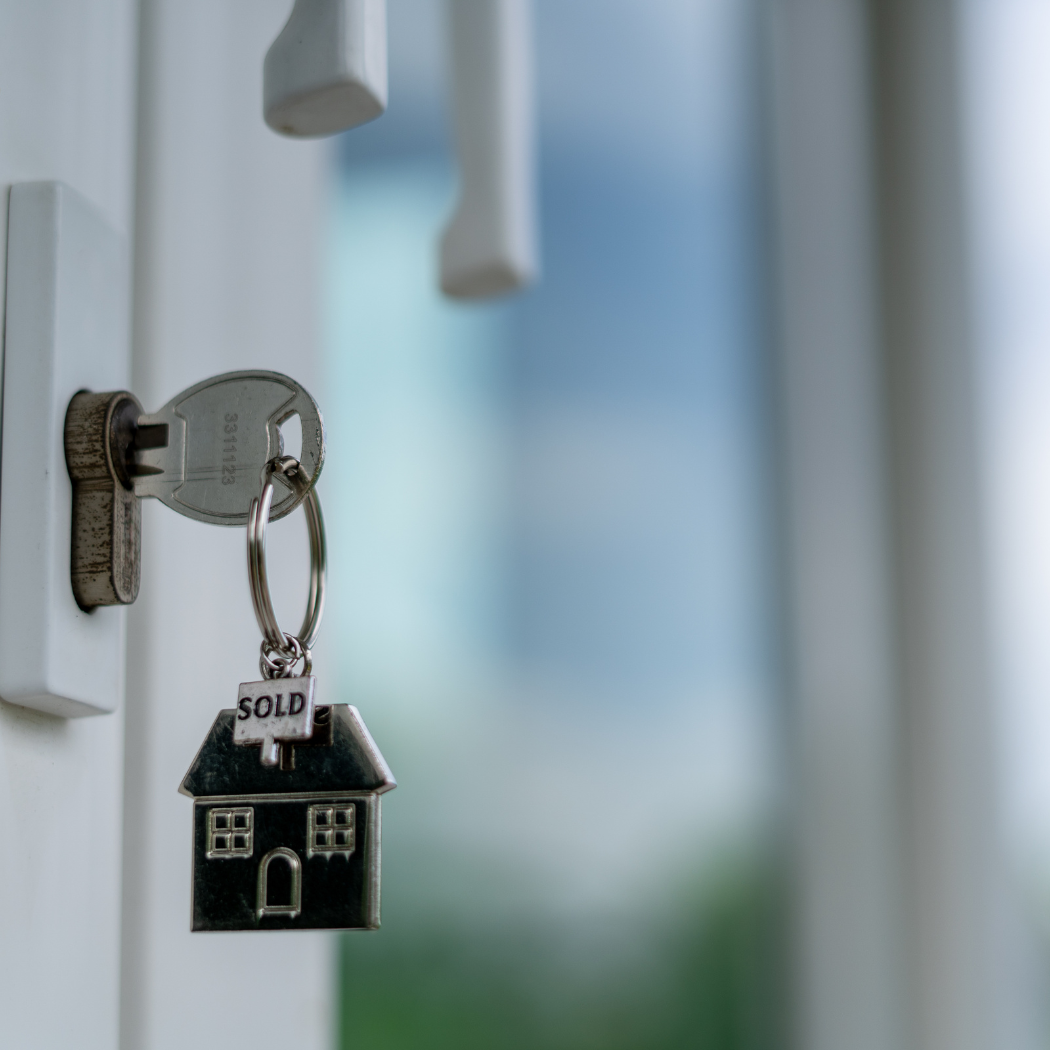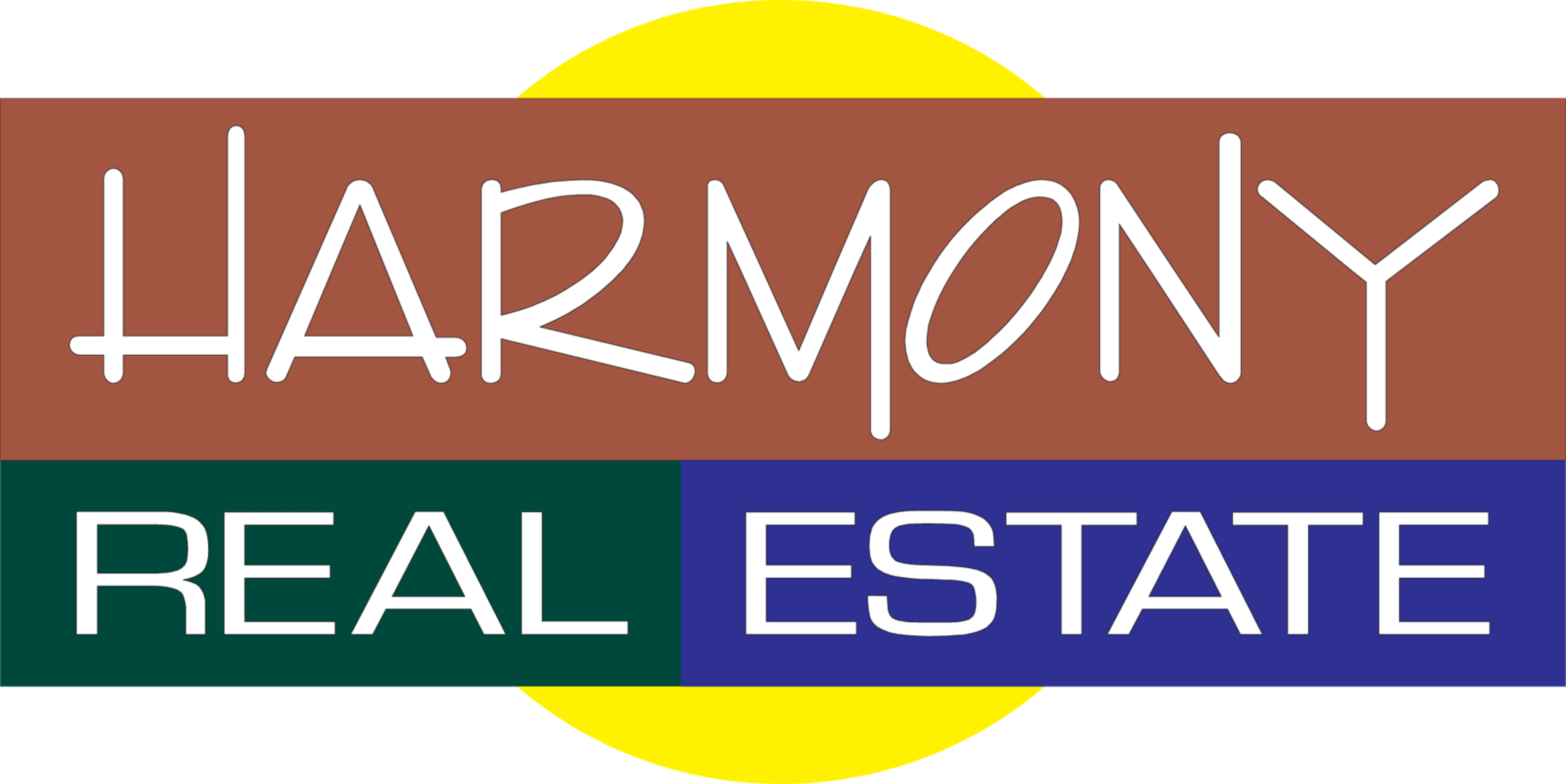The Ultimate Benefits of Buying vs. Renting

Deciding whether to buy a house or continue renting is a big decision. Both options have their advantages and drawbacks, and the right choice depends on your current situation and future goals. Owning a house can offer long-term financial stability, while renting provides flexibility and less responsibility. In this blog, we'll explore the benefits of buying vs. renting, comparing the pros and cons of each to help you decide what’s best for your lifestyle.
If you’re looking at Litchfield houses for sale or weighing your renting options, this guide will break down the key factors to consider.
1. Financial Benefits of Buying a House
One of the biggest advantages of buying a house is the potential for financial growth. When you own a house, your monthly mortgage payments build equity, which can lead to long-term financial stability.
Advantages of buying a house:
Building Equity: Each mortgage payment you make helps you build equity in your house. Over time, as you pay off your loan and the value of the house increases, you gain ownership of a valuable asset.
Appreciation: Houses tend to increase in value over time, meaning you could sell your house for more than you paid for it. This appreciation is one of the biggest financial benefits of homeownership.
Tax Benefits: Homeowners may be eligible for tax deductions on mortgage interest and property taxes, which can lead to significant savings.
Fixed Payments: With a fixed-rate mortgage, your monthly payments stay the same over the life of the loan, providing predictability in your budget.
Owning a house is a long-term investment that can pay off both financially and emotionally. If you’ve been browsing Litchfield houses for sale, you might be ready to take that step toward building your financial future through homeownership.
2. Financial Drawbacks of Buying a House
While there are many financial benefits to owning a house, there are also some costs and responsibilities to consider. Buying a house requires a significant upfront investment, and ongoing maintenance costs can add up.
Disadvantages of buying a house:
Upfront Costs:
Purchasing a house involves a down payment, closing costs, and moving expenses, which can be a financial hurdle for some buyers.
Maintenance and Repairs: As a homeowner, you’re responsible for maintaining the house, which can be costly. From roof repairs to appliance replacements, unexpected expenses can arise.
Property Taxes and Insurance: Homeowners must pay property taxes and homeowner's insurance, adding to the overall cost of ownership.
Market Fluctuations: The value of a house can go up, but it can also go down if the housing market dips, which may impact your investment.
When weighing the benefits of buying vs. renting, it’s important to take these costs into account and ensure you’re financially prepared for homeownership. If you’re eyeing Litchfield houses for sale, make sure you understand both the financial and emotional commitment involved in owning a home in such a desirable area.

3. Financial Benefits of Renting
Renting can be a smart financial choice, especially if you're not ready to commit to a long-term investment. With renting, there are fewer upfront costs and responsibilities, which can make it a more affordable option in the short term.
Advantages of renting:
Lower Upfront Costs: Renting typically requires a security deposit and the first month’s rent, which is far less than the down payment required to buy a house.
No Maintenance Costs: As a renter, your landlord is responsible for maintenance and repairs. If the furnace breaks or the roof leaks, you don’t have to worry about the cost of fixing it.
Flexibility to Move: Renting gives you the flexibility to move when your lease is up. This is great if you’re not sure where you want to settle down or if you expect to relocate for work.
No Property Taxes: Renters don’t have to worry about paying property taxes, which can save money compared to homeownership.
If you’re not ready to take on the responsibilities of owning a house, renting offers financial flexibility and can free you from the long-term commitment of a mortgage. But if the idea of putting down roots appeals to you, exploring Litchfield houses for sale could be your next step.
4. Financial Drawbacks of Renting
While renting may seem more affordable upfront, it doesn’t offer the same long-term financial benefits as owning a house. When you rent, your monthly payments don’t contribute to building equity, and you may face rent increases over time.
Disadvantages of renting:
No Equity: When you rent, your monthly payments go toward your landlord's mortgage, not your own. You don’t build any equity or ownership in the property.
Rent Increases: Unlike a fixed-rate mortgage, rent prices can increase at the end of your lease, making it harder to predict your housing costs.
No Tax Benefits: Renters don’t qualify for the same tax deductions that homeowners can take advantage of, such as mortgage interest or property tax deductions.
Limited Control: As a renter, you have limited control over the property. You may not be able to make significant changes, such as painting walls or renovating, without the landlord’s permission.
For some people, the financial drawbacks of renting outweigh the benefits, especially when compared to the potential for growth through homeownership. If you’re in a position where you can invest, browsing Litchfield houses for sale might be a good move to explore long-term benefits.

5. The Emotional Benefits of Owning a House
Owning a house comes with more than just financial rewards—it also provides emotional benefits. There’s a sense of pride that comes with owning your own space, and the stability of homeownership can give you peace of mind.
Emotional advantages of owning a house:
Sense of Stability: When you own a house, you have control over your living situation. There’s no landlord to raise the rent or ask you to move, giving you a greater sense of security and stability.
Pride of Ownership: Owning a house gives you the freedom to personalize and make it truly yours. From painting the walls to landscaping the yard, you can create a space that reflects your personality and style.
Long-Term Investment: Knowing that your house is an investment in your future can give you peace of mind. Over time, your house may appreciate in value, adding to your financial security.
Many buyers look at Litchfield houses for sale with the dream of planting roots and enjoying the emotional benefits that come with homeownership. Owning a home gives you a sense of belonging and accomplishment, something renting just can't provide.
6. The Flexibility of Renting
Renting offers more flexibility than owning, especially if you’re someone who values the freedom to move or isn’t ready to settle down. For renters, a lease is typically only a year-long commitment, making it easier to relocate or adjust your living situation as needed.
Benefits of flexibility when renting:
Easier to Move: If you’re not sure where you want to live long-term, renting gives you the flexibility to move without the hassle of selling a house. This is particularly useful if your job or lifestyle requires frequent moves.
No Long-Term Commitment: Renting allows you to live in different neighborhoods or cities without making a long-term commitment. You can experience different areas before deciding where to settle.
Freedom from House Maintenance: If you enjoy a hands-off approach to housing, renting lets you avoid the responsibilities of maintenance and repairs, leaving more time for other activities.
While renting may not offer the same financial stability as owning, the flexibility it provides can be a huge advantage for those who value mobility and freedom. If you're still deciding, but Litchfield houses for sale have caught your eye, it’s worth considering whether flexibility or long-term stability is more important to you right now.
7. Is Buying a House the Right Choice for You?
Now that we’ve looked at the benefits of buying vs. renting, it’s time to think about what’s best for your situation. If you’re ready to invest in your future, build equity, and enjoy the emotional rewards of owning a house, buying may be the right choice. Keep in mind that homeownership requires a long-term commitment and financial readiness.
Ask yourself:
Are you financially prepared for a down payment, closing costs, and ongoing expenses like maintenance and repairs?
Are you ready to settle in one place for several years?
Are you interested in building equity and taking advantage of potential tax benefits?
If you answered "yes" to these questions, it might be time to explore Litchfield houses for sale and take the leap into homeownership. The investment could pay off both emotionally and financially as you grow your equity and establish roots in a great community.
8. Is Renting the Right Choice for You?
If flexibility and lower upfront costs are your top priorities, renting may be the better option. Renting gives you the freedom to move more easily and avoids the responsibilities of home maintenance, which can be appealing if you’re not ready for the long-term commitment of owning a house.
Consider these factors:
Do you prefer flexibility and the ability to move without the hassle of selling a house?
Are you not yet financially prepared for the upfront costs of buying a house?
Do you want to avoid the responsibilities of house maintenance and repairs?
If renting aligns with your current lifestyle and goals, then continuing to rent may be the best option for now. But if you’re thinking about settling down and have started noticing Litchfield houses for sale, it might be a sign that homeownership is in your future.

Benefits of Buying vs. Renting
There’s no one-size-fits-all answer when it comes to buying a house vs. renting. Both options offer unique advantages and challenges, and the right choice depends on your financial situation, lifestyle, and future plans.
If you’re leaning toward buying, the financial stability and emotional benefits of owning a house can be incredibly rewarding. On the other hand, if you value flexibility and lower upfront costs, renting may be a better fit for your current needs.
As you explore Litchfield houses for sale, keep in mind that this decision is about what works best for you now—and in the years to come. Whether you choose to rent or buy, make sure it aligns with your goals, and know that the right home is out there waiting for you. If you’re ready to make a move, our real estate agents can guide you through the entire process, ensuring your sale goes smoothly and helps you achieve your goals.
